
Roald Dahl was a British author of popular children's literature and short stories, a poet, screenwriter and a wartime fighter ace. His books have sold more than 300 million copies worldwide. Dahl has been called "one of the greatest storytellers for children of the 20th century".
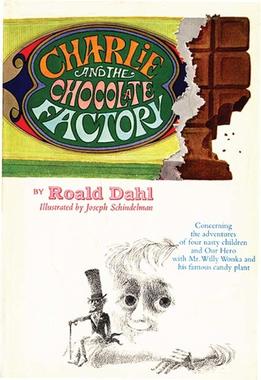
Charlie and the Chocolate Factory is a 1964 children's novel by British author Roald Dahl. The story features the adventures of young Charlie Bucket inside the chocolate factory of eccentric chocolatier Willy Wonka.
Sir Quentin Saxby Blake, is an English cartoonist, caricaturist, illustrator and children's writer. He has illustrated over 300 books, including 18 written by Roald Dahl, which are among his most popular works. For his lasting contribution as a children's illustrator he won the biennial international Hans Christian Andersen Award in 2002, the highest recognition available to creators of children's books. From 1999 to 2001, he was the inaugural British Children's Laureate. He is a patron of the Association of Illustrators.
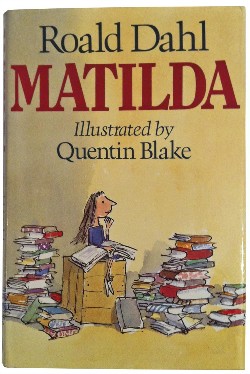
Matilda is a 1988 children's novel by British author Roald Dahl. It was published by Jonathan Cape. The story features Matilda Wormwood, a precocious child with an uncaring mother and father, and her time in school run by the tyrannical headmistress Miss Trunchbull.

The Witches is a 1983 children's novel by British author Roald Dahl. A dark fantasy, the story is set partly in Norway and partly in England, and features the experiences of a young English boy and his Norwegian grandmother in a world where child-hating societies of witches secretly exist in every country. The witches are ruled by the vicious and powerful Grand High Witch, who arrives in England to organise her plan to turn all of the children there into mice.
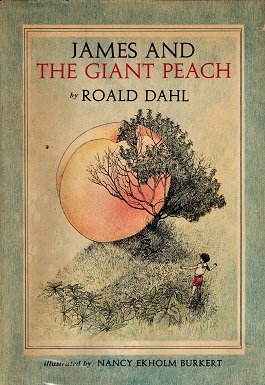
James and the Giant Peach is a popular children's novel written in 1961 by British author Roald Dahl. The first edition, published by Alfred Knopf, featured illustrations by Nancy Ekholm Burkert. There have been re-illustrated versions of it over the years, done by Michael Simeon, Emma Chichester Clark, Lane Smith and Quentin Blake. It was adapted into a film of the same name in 1996 which was directed by Henry Selick, and a musical in 2010.

The Magic Finger is a 1966 children's story by British author Roald Dahl. First published in the United States by Harper & Row with illustrations by William Pène du Bois, Allen & Unwin published the first U.K. edition in 1968. Later editions have been illustrated by Pat Marriott, Tony Ross, and Quentin Blake. The novel was adapted into a 1990 TV special on ITV (CITV). The author Roald Dahl narrated an unabridged recording for Harper Children Audio and Kate Winslet narrated an unabridged recording in 2013 for Penguin Audio.
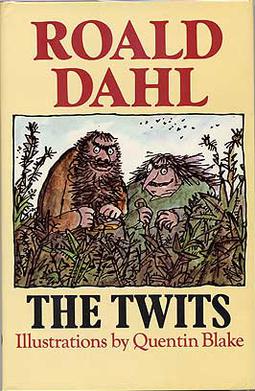
The Twits is a 1980 children's novel by British author Roald Dahl. It was first published by Jonathan Cape. The story features The Twits, a spiteful, idle, unkempt couple who continuously play nasty practical jokes on each other to amuse themselves, and exercise their devious wickedness on their pet monkeys.

The Giraffe and the Pelly and Me is a 1985 children's book written by Roald Dahl and illustrated by Quentin Blake. The plot follows a young boy named Billy who meets a giraffe, a pelican, and a monkey, who work as window cleaners.

The Wonderful Story of Henry Sugar and Six More is a 1977 short story collection by British author Roald Dahl. The seven stories are generally regarded as being aimed at a slightly older audience than many of Dahl's other children's novels.
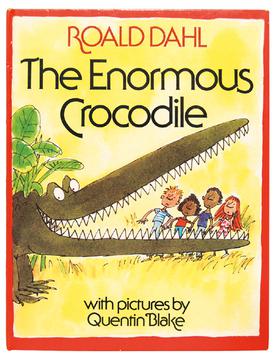
The Enormous Crocodile is a British children's story, written by British author Roald Dahl and illustrated by Quentin Blake. A picture book written for younger readers than Dahl's other works, the story tells of a hungry crocodile who aims to eat human children via using various, not-quite-impenetrable disguises.

Fantastic Mr Fox is a children's novel written by British author Roald Dahl. It was published in 1970, by George Allen & Unwin in the UK and Alfred A. Knopf in the U.S., with illustrations by Donald Chaffin. The first Puffin paperback, first issued in 1974, featured illustrations by Jill Bennett. Later editions have featured illustrations by Tony Ross (1988) and Quentin Blake (1996). The story is about Mr Fox and how he outwits his farmer neighbours to steal their food from right under their noses.

Dirty Beasts is a 1983 collection of Roald Dahl poems about unsuspecting animals. Intended to be a follow-up to Revolting Rhymes, the original Jonathan Cape edition was illustrated by Rosemary Fawcett. In 1984, a revised edition was published with illustrations by Quentin Blake.

The Roald Dahl Children's Gallery is a children's museum that uses characters and themes from the books of Roald Dahl to stimulate children's interest in science, history and literature.

Revolting Rhymes is a 1982 poetry collection by British author Roald Dahl. Originally published under the title Roald Dahl's Revolting Rhymes, it is a parody of traditional folk tales in verse, where Dahl gives a re-interpretation of six well-known fairy tales, featuring surprise endings in place of the traditional happily-ever-after finishes.

Roald Dahl's Guide to Railway Safety was published in 1991 by the British Railways Board. In a response to rising levels of train-related fatalities involving children, the British Railways Board asked Roald Dahl to write the text of the booklet, and Quentin Blake to illustrate it, to help young people enjoy using the railways safely. It was published a year after Dahl's death.

My Year is a book by Roald Dahl and was published in 1993. It is based on a diary Dahl wrote during the final year of his life. In a month-by-month journey, he reflects on the past and present from many perspectives. Reminiscences of his childhood and adolescence are combined with tips on how to rid your lawn of moles or produce a first-class conker. All of this is woven into Dahl's observations of the changing seasons. It features watercolours by Quentin Blake.

Rhyme Stew is a 1989 collection of poems for children by Roald Dahl, illustrated by Quentin Blake. In a sense it is a more adult version of Revolting Rhymes (1982).
"Muggle-Wump" the monkey is a fictional character in some of Roald Dahl's books for children, and "the Muggle-Wumps" are his family. A Muggle-Wump appears in The Enormous Crocodile and there is a Muggle-Wump with a family in The Twits. A Muggle-Wump lookalike appears in The Giraffe and the Pelly and Me. The first two stories have him almost as a symbol of retribution to the antagonists of the overall tale, whereas in the last one he is happy and safe.
The Roly-Poly Bird is a fictional character in several children's books by Roald Dahl. He appears in The Enormous Crocodile (1978), The Twits (1980), and the poetry collection Dirty Beasts (1983).

















